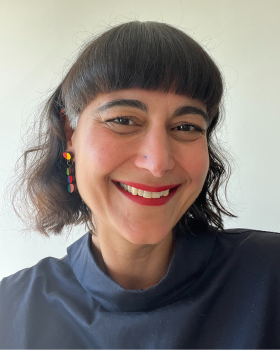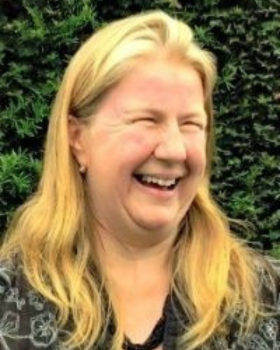Advanced Copy-Editing

This open course is designed for experienced editors working in non-fiction. Its focus is on the more complex issues of the craft, with attendees’ own experience and approach playing a major part in determining its shape.
The course is delivered over two half days. It includes exercises, and direction and presentation from the tutor. Delegates will also be expected to listen to, and to learn from, each other’s contributions.
Attendees may have already attended either of the PTC’s courses Introduction to Editorial Skills or Progress in Editorial Skills.
Who is it for?
- Editors working at an intermediate level in Academic, Educational, Professional, Special Interest or STM publishing on print and/or e-books
- commissioning editors
- desk editors
- production editors
- publishers
- anyone for whom copy-editing is a key part of their role
What will you achieve?
On completing this course you will be able to:
- feel more confident about managing and monitoring the editorial process
- gauge the complexity of an editorial task and develop a strategy for working on it
- find means of dealing with areas of linguistic and cultural sensitivity, and legality
- adjust an author’s style and structure without antagonising them
- apply the techniques learnt to any text to make it clearer and more accessible.
Programme
Day 1
- How we deal with the challenges and pitfalls of editing a book
- The importance of analysing and planning before starting editing
- Adjusting structure and patterns to ensure clarity of argument
- Resolving discrepancies and checking for accuracy and consistency of content
Programme
Day 2
- Issues of language, culture and legality
- Achieving clarity and economy, and engagement with the author
- Working towards consistency of style
- Working with others in the publishing process
Course format
- Virtual classroom
- 9.00am to 12.30pm
- 4 x 1½-hour sessions, split across two half days comprising two half-day sessions one week apart
Date information for future sessions
May 2026
- Dates: 7 & 14 May 2026
- Times: Each session will run from 9.00am to 12.30pm
- Tutor: Sarah Sodhi
July 2026
- Dates: 2 & 9 July 2026
- Times: Each session will run from 9.00am to 12.30pm
- Tutor: Sarah Sodhi
November 2026
- Dates: 19 & 26 November 2026
- Times: Each session will run from 9.00am to 12.30pm
- Tutor: Caroline Knight
What you will need
To join the course, you will need access to a computer or laptop with a camera and microphone. You will need to activate a free Zoom account to join the course. This takes two minutes and does not require any payment. It is purely for administrative purposes.
How the course is delivered
The course consists of four sessions, each a mixture of delivery and interaction using Zoom breakout rooms and other online tools. There will be 15-minute breaks between sessions with the opportunity to do exercises and take a break. The course will run on the same day across two weeks, split into two half-day sessions in the morning from 9am to 12.30pm.
You will need to activate a free Zoom account to join the course. This takes two minutes and does not require any payment. It is purely for administrative purposes.
Any information to be completed beforehand will be sent via email.
Accessibility
Please contact us at with any accessibility or special requirements, for example having in-session captions or the learning materials sent to you in advance.
If you have any concerns about technical requirements or access please contact us on or telephone +44 (0)20 8874 2718.
In-company training
This course is also available for in-company training, either virtually or in person at your office. Course content is tailored to suit your requirements. Group sizes range from 5 to 12 attendees. To find out more, email or telephone +44 (0)20 8874 2718.
Delegate feedback
"I enjoyed the course. It was challenging, as I don't work for a large publisher, but the teacher was patient and the other attendees were forthcoming with sharing their own experiences. I particularly enjoyed the second session, when we completed the exercises in small groups/pairs which felt more collaborative. The group size was ideal and the handouts have been useful in planning improvements to how I and my colleagues work. The course will enable me to set about report editing in a much more methodical way and, I hope, establish a more effective report production process." Sustainable Food Trust delegate
"The tutor was generous with her advice and we had a lovely group. I'm now able to better organise my editing projects and plan my time." Freelance Copy-Editor and Translator
"The course was engaging and helpful. I can already apply the skills I learnt in my day-to-day work and it was great to hear from other people's experiences." Cambridge University Press and Assessment delegate
"As a business owner who manages my own website, this course has significantly influenced how I approach web copy – informing my editorial process and demonstrating the benefits of applying literary editing techniques to digital content. I also learned about processes followed by other content professionals, broadening my understanding of the different ways of undertaking copy-editing. We also explored analysing and planning, style sheets, how to collaborate with writers, and the importance of cultural sensitivity while editing. Well-planned and expertly presented, Advanced Copy Editing is an essential course for content professionals including writers, marketers, and content managers." Toby, Business Owner
“I very much enjoyed the course, particularly the focus on sharing our approaches to each piece. It’s really interesting to see how my most talented colleagues tackle challenging texts!” Imagine Learning delegate
“There were some very helpful bitesized takeaways … it was great to have the opportunity to work with fellow delegates, especially in a small group.” Editor, Class Publishing
“The handouts were incredibly useful, and I will make use of these in my work.” Production Editor, The Open University
About the tutor(s)
One tutor will deliver both sessions of a course.
 Since 1999, Sarah Sodhi has proofed, tagged, bound, corrected, edited, managed, commissioned, subbed, scheduled, estimated and produced a great deal of content – from interactive, multi-media resources to marketing leaflets, from monthly magazines to 900-page medical tomes.
Since 1999, Sarah Sodhi has proofed, tagged, bound, corrected, edited, managed, commissioned, subbed, scheduled, estimated and produced a great deal of content – from interactive, multi-media resources to marketing leaflets, from monthly magazines to 900-page medical tomes.
Starting her career at a small medical publisher in Oxford, Sarah produced medical textbooks, journals and a bi-monthly magazine. She then moved into the public sector to work for an adult education charity, introducing formal scheduling procedures, progress-chasing systems and detailed budgets. After this, she immersed herself in the education sector, editing and managing digital and print resources for primary, secondary and adult education publishers.
 Caroline Knight has spent her career in publishing, working both in-house and freelance. She held senior editorial roles at Penguin Books, Weidenfeld & Nicolson Illustrated, William Heinemann (an imprint of Random House) and Atlantic Books; since 2010, she has been a freelance structural and copy-editor alongside tutoring for PTC.
Caroline Knight has spent her career in publishing, working both in-house and freelance. She held senior editorial roles at Penguin Books, Weidenfeld & Nicolson Illustrated, William Heinemann (an imprint of Random House) and Atlantic Books; since 2010, she has been a freelance structural and copy-editor alongside tutoring for PTC.
Related courses
The PTC offers virtual classroom courses, self-study distance-learning courses, and a range of e-learning modules. See below for those that complement or build on this course.
Virtual Classroom Courses
- Applying AI – Tools, Ethics and First Practical Steps
- Copyright – the Basics
- Editorial Project Management
- Grammar and Punctuation – the Basics
- How to Mark Up PDFs with Adobe Acrobat
- Introduction to Editorial Skills
- Line-Editing Workshop (Fiction or Non-Fiction)
- Making Sense of Grammar
- Making Sense of Punctuation
- Progress in Editorial Skills
- Publishing Strategy Toolkit
- Rewriting and Substantive Editing
- Working with Authors
e-Learning Modules
- A Commissioning Editor's Guide to Working with Authors
- A Copy-Editor's Guide to Working with Authors
- An Editor's Guide to Author Queries
- An Editor's Guide to Editing Fiction
- An Editor's Guide to Editing Illustrations
- An Editor's Guide to Editing References
- An Editor's Guide to Editorial Style
- Essential Copyright for Publishers
- Essential Editorial Project Management
- Proofreading PDFs: A Complete Guide for Editors
For more information about any of these courses, please email or sign up to receive our newsletter for updates on these and our other offerings.
Please read our Terms & Conditions